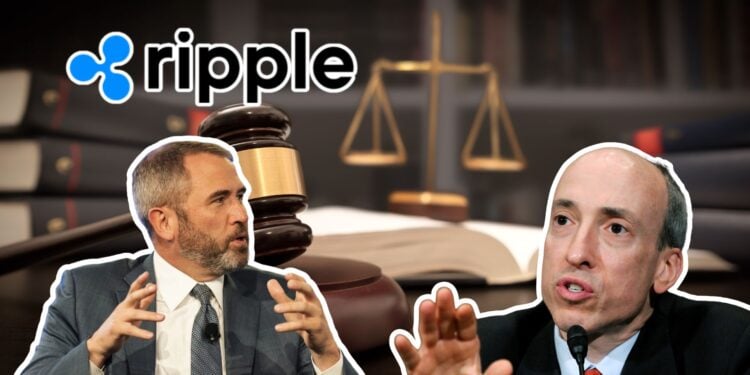- The U.S. SEC has officially appealed the XRP ruling by Judge Analisa Torres, reigniting the legal battle over whether XRP sales on crypto exchanges qualify as securities.
- The SEC is contesting several key aspects of the ruling, including that XRP sales on digital trading platforms were not unregistered securities, that personal XRP sales by Ripple executives did not violate securities laws, and that Ripple’s non-cash XRP distributions did not breach the Securities Act.
- The outcome of this case could have a major impact on the future of cryptocurrency regulation.
The US Securities and Exchange Commission (SEC) has officially appealed Judge Analisa Torres’ ruling in its high-profile case against Ripple Labs over the status of XRP as a security. This critical development reignites the fierce legal battle over whether XRP sales on crypto exchanges require securities registration.
SEC Formally Appeals Key Aspects of the XRP Ruling
On Thursday, the SEC submitted Form C to the US Court of Appeals for the Second Circuit, formally launching its appeal against Ripple Labs.
The appeal challenges several momentous conclusions made by Judge Torres in her district court ruling this July. Specifically, the SEC disputes:
- The finding that Ripple’s XRP sales on digital asset platforms were not unregistered securities offerings
- The determination that XRP distributions by Ripple executives Brad Garlinghouse and Chris Larsen in exchange for services did not violate securities laws
- The ruling that personal XRP sales by Garlinghouse and Larsen did not constitute securities breaches
Ripple scored a significant victory when Judge Torres ruled that XRP transactions on digital exchanges were not securities. However, the judge did find that Ripple’s direct institutional sales of XRP constituted unregistered securities trades.
While Ripple must pay a $1.25 million penalty, the company heralded the decision as an endorsement of its long-held position that XRP functions as a currency, not a security.
Meanwhile, the SEC maintains that all XRP transactions involved an investment contract and therefore should have been registered as securities.
The Road Ahead: How the Appeal Could Shape Crypto Regulation
The SEC’s appeal ensures that uncertainties around XRP’s status will persist. The regulator is determined to establish that all XRP transactions are securities offerings requiring registration.
If the appeals court sides wholly with the SEC, it would dramatically expand the agency’s authority over cryptocurrencies. Many assets sold on exchanges could suddenly be subject to securities laws.
Conversely, an appeals victory for Ripple would secure XRP’s place as a non-security and reinforce the company’s argument that cryptocurrencies are currencies rather than investment contracts.
For now, the appeals process thrusts the divisive issue of XRP’s status back into the spotlight. The final ruling will have far-reaching implications for the cryptocurrency regulatory landscape.














